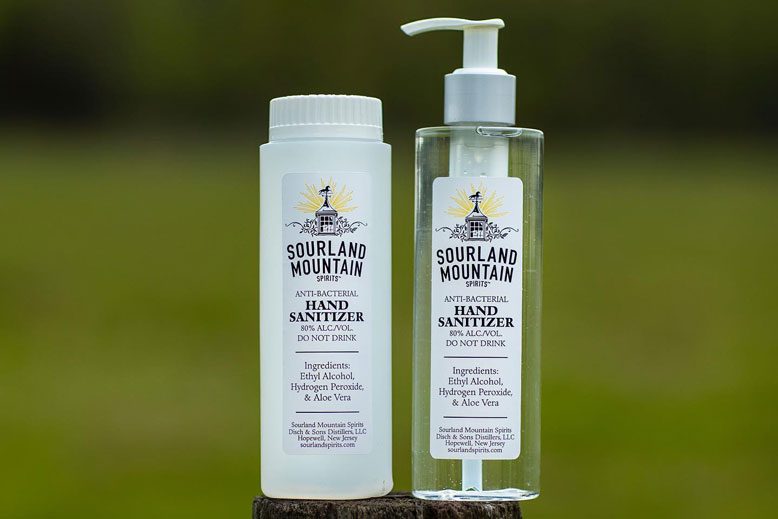
In the early days of the Covid-19 lockdown when demand for hand sanitizer outweighed existing supplies, unexpected heroes emerged to help fill dispensers and keep germs at bay: distilleries.
Across the country, distilleries of all sizes pitched in and began to produce hand sanitizer in their stills, offering it to front line health care workers as well as customers. It was the right thing to do, many said, and also helped keep the business running as tasting rooms were forced to close and retail sales took a hit.
Months later, as supplies from the large manufacturers have ramped back up and there does not appear to be the same run on supplies from consumers, distillers are pulling back from production, re-focusing on their passion, and trying to sell some surplus.
“Sanitizer for us was a real lifeline, it allowed us to stay relevant and to be useful during peak pandemic,” says Gil Spaier of All Points West Distillery in Newark. “In April and May, we were making and selling sanitizer five days a week with most of the product going to local hospitals. However, we always knew that our cost of goods would be far too high to be competitive once the old supply chain caught up with demand. We did not intend to make this a permanent part of our business and were happy to leave the sanitizer market in June to return to spirits.”
When sanitizer supplies dwindled in the spring, craft distillers were uniquely situated to fill the void. Possessing the right equipment and having key ingredients on hand, all they needed to do was fire up the still and follow guidelines from the FDA. (It should be noted again that hand sanitizer is not safe for human consumption.)
While it was—and continues to be—a tough period for craft distilleries, some saw positives in making sanitizer. It was a chance to connect with local customers in a new way, says Ray Disch of Sourland Mountain Spirits in Hopewell and to show off the quality of the product being produced.
This was especially true several weeks ago when some sanitizer companies needed to recall batches that were deemed harmful to humans.
“That certainly gave us a boost and the chance to say you can trust your local distillery to make a quality and safe product,” he says.
During the early months of Covid-19, Disch says his distillery did not stop making spirits, but instead focused on bourbon and barrel-aged gin that would be stored for months or longer before being released. This will mean Sourland Mountain will have spirits in stock for when sales pick up again.
In the meantime, he does have a small storage facility that is filled with sanitizer and is working with schools and local businesses “in anticipation that these places will open again.”
“The relationship with local organizations is something that has been great for us and something we would like to keep going,” Disch says.
At Asbury Park Distilling, Andrew Karas says the company has stopped manufacturing hand sanitizer “for the time being” so they can focus on “our core business of manufacturing distilled spirits.”
The sanitizer they did make went to “the elderly at risk, numerous first responders, police departments, and hospitals, as well as to many commercial entities,” he says.
If producing hand sanitizer has led to new customers of small batch, locally made spirits, the data remains unclear.
“Should the need arise again, we will again start producing hand sanitizer,” says Karas. “In terms of attracting new customers, it is difficult to determine if any new customers purchased our spirits because of the hand sanitizer.”



